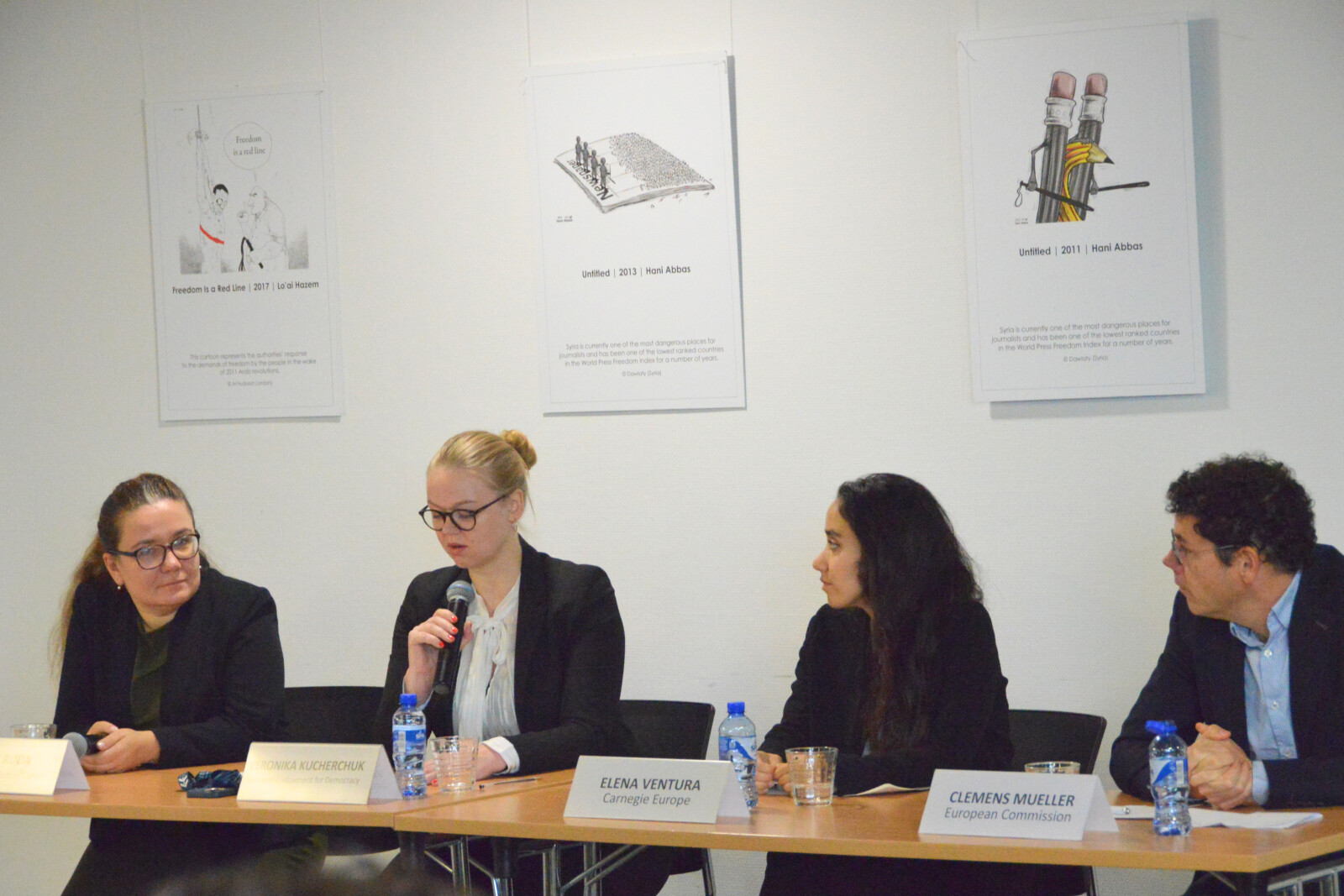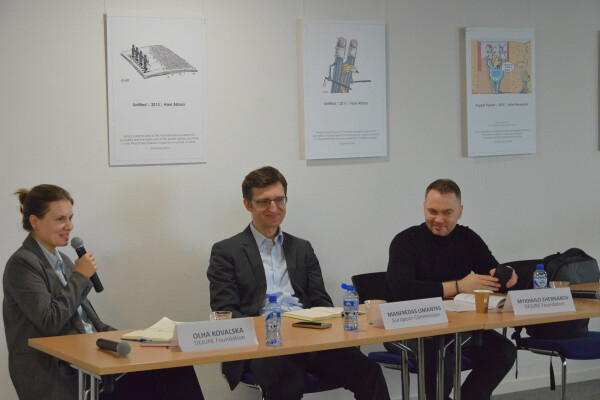
KEY FINDINGS
Democratic resilience persists despite war. July 2025 saw mass public mobilisation in Ukraine, with predominantly young people on the streets, protesting government attempts to undermine anti-corruption institutions. This grassroots resistance demonstrates that democratic accountability remains significant for Ukraine's youth in the wartime context. The problematic legislation was swiftly reversed, and EU leverage contributed to this outcome. However, this act was within a broader pattern of coordinated pressures on civil society that appear pre-planned and coordinated.
EU integration is a key reform incentive. With US withdrawal and G7 influence waning, EU accession represents a substantial driver for institutional reform. However, momentum has slowed due to multiple factors: Hungary's blockage of cluster negotiations; Russia’s ongoing war against Ukraine; an absence of elections for over six years; public fatigue; and limited political engagement. Despite polls showing that 75% of Ukrainians support EU conditionality and concrete steps on anti-corruption, this public backing has not translated into consistent reform action and the Ukrainian government has not always consistently followed all EU recommendations.
Three main pillars currently supporting checks and balances in the system are under pressure: Anti-corruption bodies, watchdog organisations, and independent media face different types of pressures from the central government, while the withdrawal of US funding creating critical resource shortfalls for civil society organisations that monitor key institutions and processes.
Trust-building measures must deliver genuine reform. While Ukraine achieved institutional progress since 2014, recent developments have eroded trust towards the government's anti-corruption intentions and progress. Specific concerns remain. For example, the General Prosecutor retains considerable powers and attacks on anti-corruption agencies continue despite their demonstrable effectiveness in investigating cases and recovering assets. Also, while the Constitutional Court appointment process involves a commission of judges and has undergone mostly successful reforms, in July, there was a further attempt to form a new selection commission without international experts.

STRATEGIC PRIORITIES
Prioritisation is key. The 529 measures in the rule of law roadmap risk undermining possible progress. 15 key priorities addressing the Supreme Court, State Bureau of Investigation, and prosecutorial independence would enable more effective monitoring of achievements and enable the next wave of reforms without risk of regression.
Make EU conditionality explicit and immediate. Establish near-term links between specific reforms and concrete benefits. Distinguish between benchmarks, requirements tied to cluster opening for EU accession, and recommendations, which are defined annually and carry no direct monetary attachment. Financial instruments provide stability, with conditionality offering leverage. Clear linkage between funds and requirements is essential for effectiveness.
Preserve international expert participation. With 56% of Ukrainians supporting international experts in judicial appointments, maintaining this mechanism until domestic institutions achieve sufficient independence is crucial.
Engage various stakeholders for reform momentum. Creative approaches are needed to engage citizens, the Office of the President of Ukraine, and EU stakeholders to maintain momentum before cluster openings. Ukrainian citizens remain actively interested and engaged, and there is sufficient societal capacity to drive progress forward if properly nurtured.
OUTLOOK
Ukraine's EU membership remains achievable. However, during wartime, the system of checks and balances operates under significant constraints, with the Verkhovna Rada weakened and power increasingly centralised. Progress requires three conditions: EU commitment to set higher standards and leverage its influence effectively, Ukrainian government commitment to genuine institutional reform, and civil society's capacity to sustain oversight functions despite constraints. Timely action is necessary to prevent accumulation of unresolved issues.